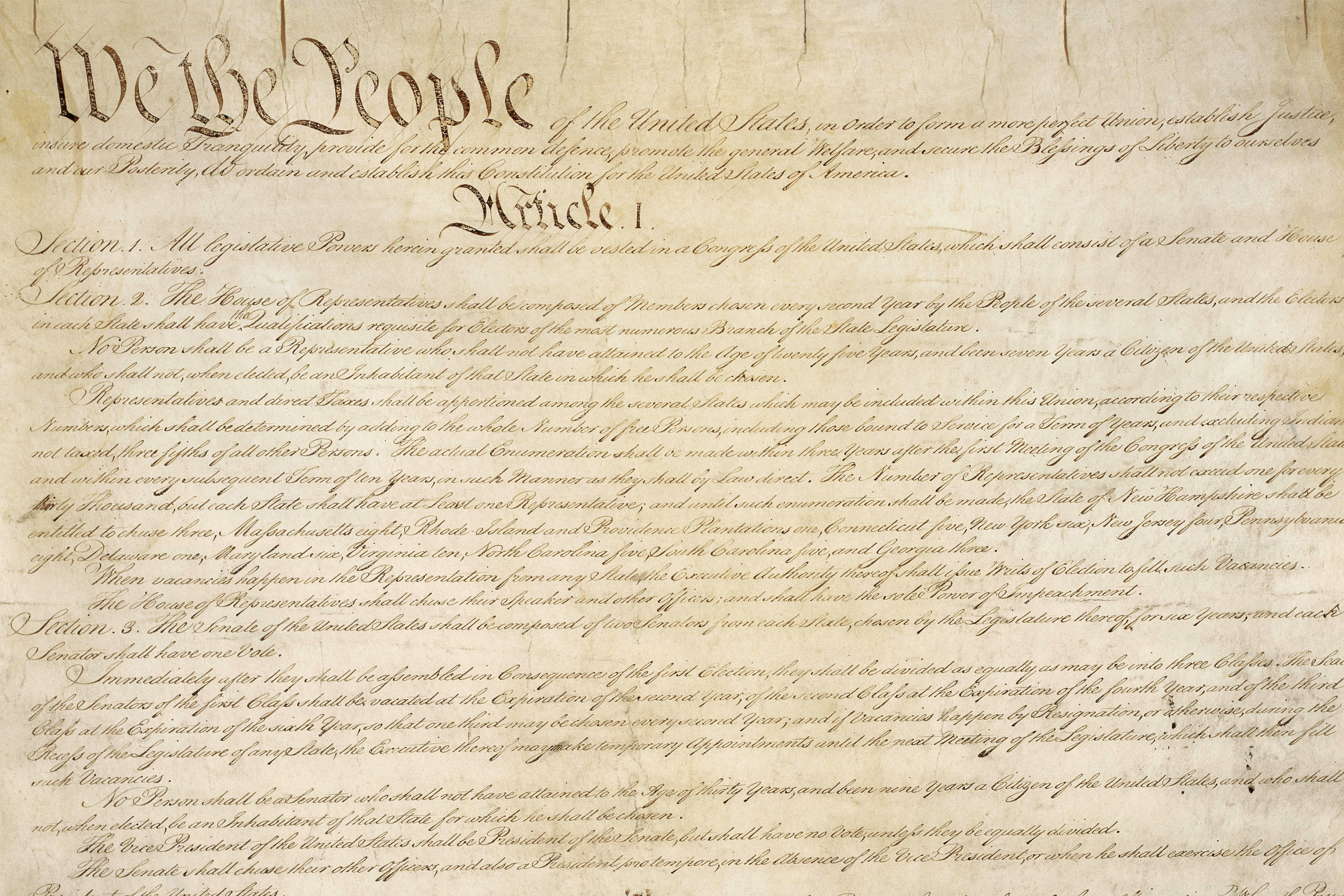
If you’re a big fan of consistency, happy Constitution Day, the day every year when we find out Americans are no smarter than they were a year ago when they proved — again — they haven’t got a clue about the document they’re quick to cite when asserting their presumed rights.
Every year the Annenberg Public Policy Center at the University of Pennsylvania surveys Americans about how much they know about the form of their government, and every year Americans prove they don’t know much.
This year, the survey says, one third of Americans couldn’t name a single branch of the United States government. Not one.
Twenty-one percent could name one branch. Thirteen percent could name two. And 32 percent — obviously elitists with their fancy book learnin’ — could name all three. Spoiler alert: Judicial, Executive, Legislative. Come on, people!
The good news? That horrifying ignorance of the framework of the Constitution is the lowest it’s been since 2014.
“It is a sad commentary on the well-being of the body politic that the ability of a third of the public to name the three branches is worthy of a headline,” Kathleen Hall Jamieson, director of the Annenberg Public Policy Center of the University of Pennsylvania, said in a news release. “Let’s hope that this year’s increase will be followed by steady increases in the following years.”
Lipstick on a pig.
It’s not just that people don’t know how the government is organized. People don’t even know what it does:
• A quarter (27 percent) incorrectly said the Constitution allows the president to ignore a Supreme Court ruling if the president believes the ruling is wrong;
• A plurality (41 percent) incorrectly said that both the House and Senate must approve before a nominee becomes a justice on the Supreme Court (30 percent correctly know that the Senate alone confirms);
• But a slim majority (55 percent) knows that a 5-4 Supreme Court decision is the law and must be followed, about the same as last year.
Coincidentally — or perhaps not — Americans seem to be getting up to speed on some facets of the Constitution. Like impeachment, the release says.
• 82 percent know that the Constitution allows the president to be removed from office if the president is impeached for and convicted of high crimes and misdemeanors;
• 75 percent know that the Constitution requires the federal government to count the number of people in the United States every 10 years, also known as the census;
• 73 percent know that when the president vetoes a bill, it still can become law if two-thirds of the members in each house of Congress vote to override the president’s veto;
• And 68 percent know that the Constitution gives the president the power to grant pardons for offenses against the United States.
This year, the Center added a couple of questions, and found that 22 percent of people agreed that if the U.S. Supreme Court should begin issuing opinions that the majority of Americans disagree with, the court should be eliminated.
The survey found a significant relationship between constitutional knowledge and protecting the Supreme Court. An analysis of responses to four of the key knowledge questions found that people who correctly answered all four strongly opposed weakening or getting rid of the court. Those items concerned the names of the three branches; what it takes for Congress to override a veto; who confirms a Supreme Court justice; and what a 5-4 Supreme Court ruling means.
“We found a direct relationship between basic knowledge about the three branches of government and wanting to protect the independence of the courts,” said APPC distinguished research fellow Bruce Hardy, an assistant professor of communication and social influence at Temple University.
Jamieson said, “The survey shows the important role that understanding of the Constitution plays in the public’s support for an independent judiciary. But it is worrisome both that 1 in 5 would consider doing away with the Supreme Court if it were to issue a lot of unpopular decisions and that 1 in 4 think it would be OK for Congress to strip jurisdiction from the court in instances in which it disagrees with the court’s ruling.
“High-quality civics education is not a luxury,” Jamieson added. “One is unlikely to appreciate or defend constitutional prerogatives or rights one does not understand.”
It takes about five minutes to read the entire U.S. Constitution.
